“Can you imagine how many kilometers we have covered in two and a half years? Today, Zaporizhzhia (the city) is being bombarded with guided bombs, and you start to think like what’s next?” says Tetiana Velyka, the editor-in-chief of the Voice of Huliaipillia newspaper. Three times during the full-scale invasion, she had to change her place of residence, but she did not leave her journalistic activities. “Sometimes there is no mood, sometimes there is no strength, sometimes there is no desire at all to get up and start doing something. These stressful situations have such an effect. I gather myself into a heap with positive thoughts,” says Tetiana.
Tatiana‘s story is just one of many that illustrate the reality that Ukrainian journalists face every day. Constant stress, threats to life, loss of home, and the usual rhythm of life have become the new norm for many media workers. In the conditions of war, the issue of the mental health of journalists becomes critical. The Journalists’ Solidarity Centers (JSCs), created by the National Union of Journalists of Ukraine (NUJU), have become key centers of psychological support for those who fight for the truth every day.
“Since the beginning of the full-scale invasion, the demand for professional psychological assistance among journalists has grown exponentially,” says NUJU First Secretary Lina Kushch. “Daily encounters with tragic events, the need to cover them and experience them together with the characters of the materials create a colossal burden on the psyche of media workers. That is why psychological support has become one of the key directions of our JSC network.”
Journalist Tetiana Velyka: “I collect myself using positive thoughts”
The story of Tetiana Velyka vividly illustrates the challenges Ukrainian journalists face. Despite three forced relocations and the constant threat of shelling, she continues to run the Holos Huliaipillia newspaper. Tetiana admits that the most difficult thing is the constant fear for herself and her loved ones, especially in front-line Zaporizhzhia.
“Every day is a struggle with one’s own emotions and exhaustion,” the journalist says. “But we have to work. The newspaper is not only our work but also informational support for the community, which needs it more than ever.”
Despite understanding the importance of psychological support, Tatiana, like many of her colleagues, often does not have the opportunity to attend group classes due to her tight work schedule and family responsibilities. “I would like to have access to individual consultations at a convenient time,” she says. “There is also a great lack of live communication with colleagues, the opportunity to share experiences and simply feel supported.”
The experience of Tetiana Velyka emphasizes the need for flexible and individualized approaches to psychological support for journalists. In conditions where every day can bring new challenges, the ability to adapt and find internal resources becomes key to continuing professional activities and maintaining mental health.
How to train stress resistance:
“Stress resistance is a skill that can and should be trained,” NUJU President Sergiy Tomilenko emphasizes. That is why NUJU‘s network of JSCs offers a wide range of activities, from individual consultations with psychologists to group training sessions and even hiking in the mountains.
Special attention is paid to media workers from the front-line areas. At the initiative of the Kyiv JSC, journalists from the Dnipropetrovsk Region, Donetsk Region, Zaporizhzhia Region, and Kharkiv Region participate in a three-month program of psychological support. It is organized by the Kyiv Educational Center called Space of Tolerance with the partnership and financial support of Civil Rights Defenders to provide psychological assistance in conditions of increased stress and challenges related to the professional activities of journalists and work in war conditions.
In Dnipro, where journalists often witness the consequences of missile attacks, special sessions are held to overcome emotional exhaustion. “It is impossible to record tragedies without dragging them through yourself. Our task is to teach our colleagues to take care of their own mental health,” says Nataliya Nazarova, the coordinator of the Dnipro JSC.
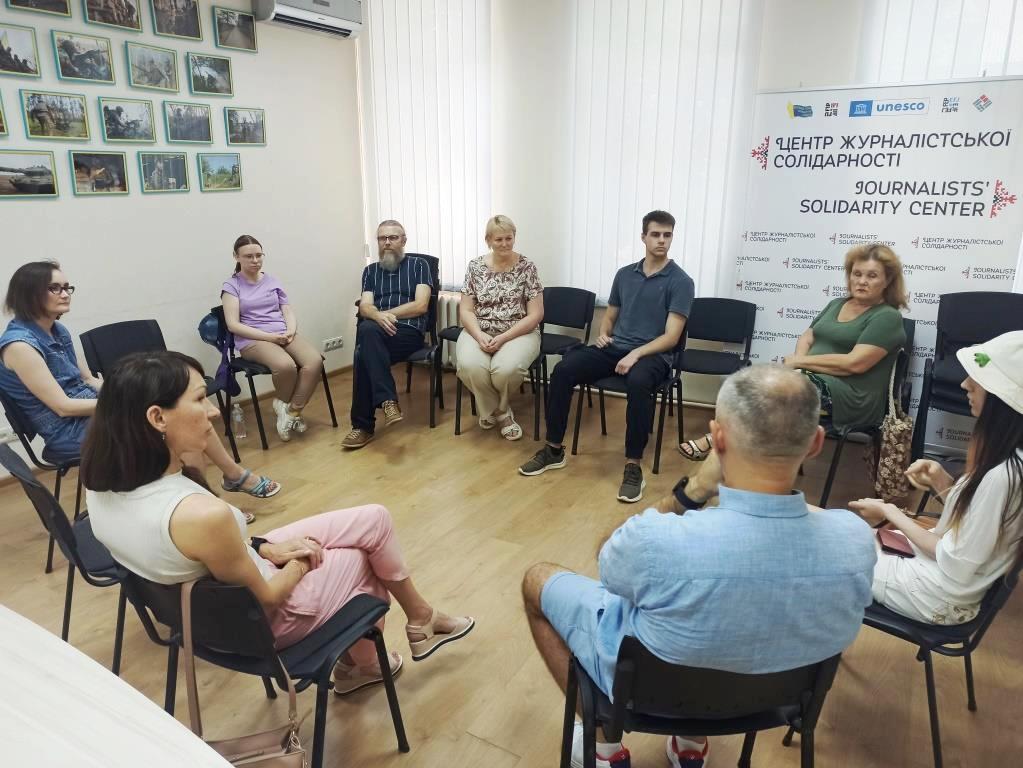
Anastasiya Ivanova, the psychological support coordinator of the Forpost non-governmental organization, draws attention to the phenomenon of secondary traumatic stress: “When a journalist encounters an event similar to his own traumatic experience, it can cause repeated trauma. It is important to be aware of such risks.”
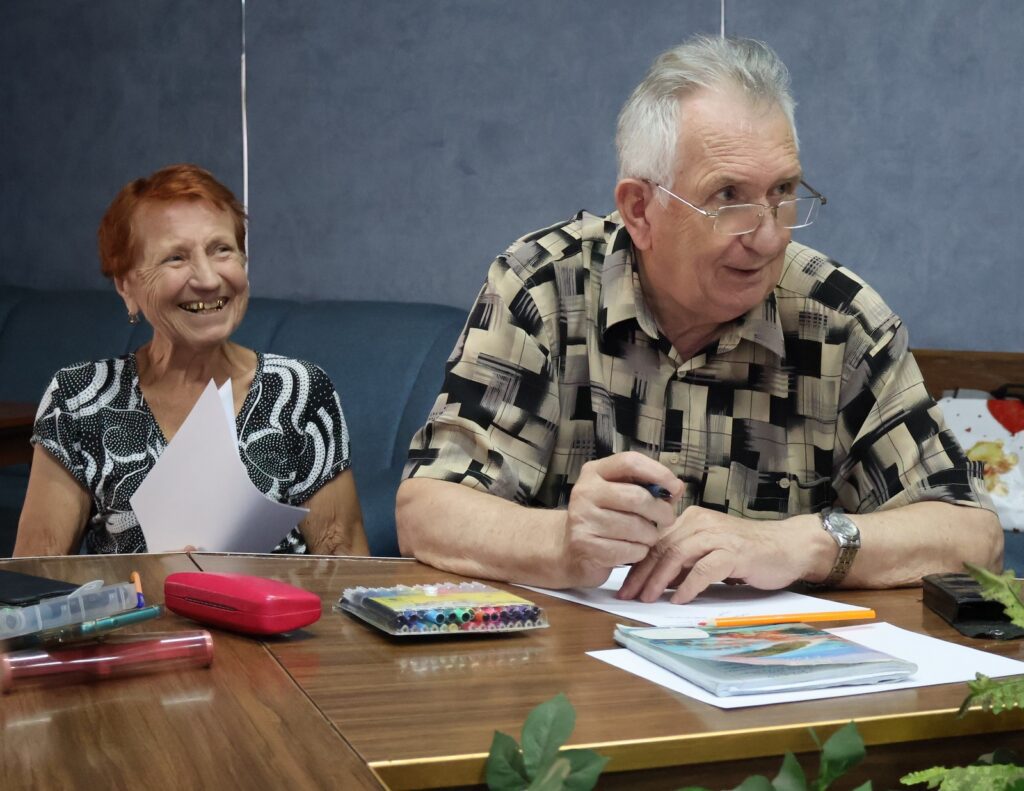
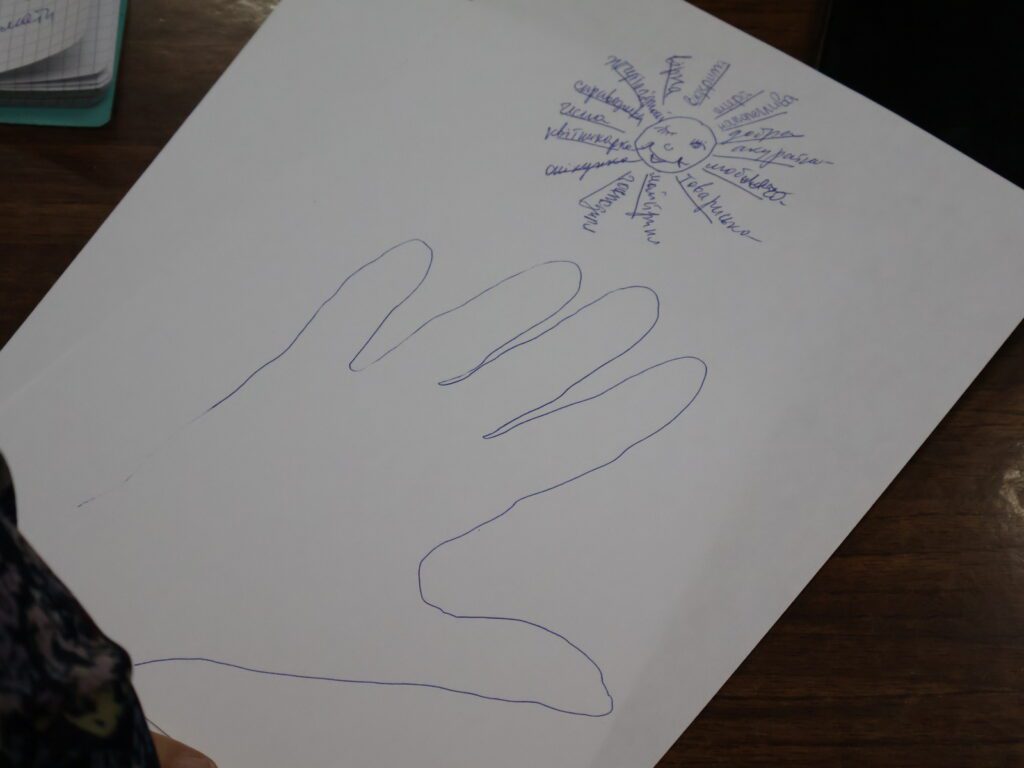
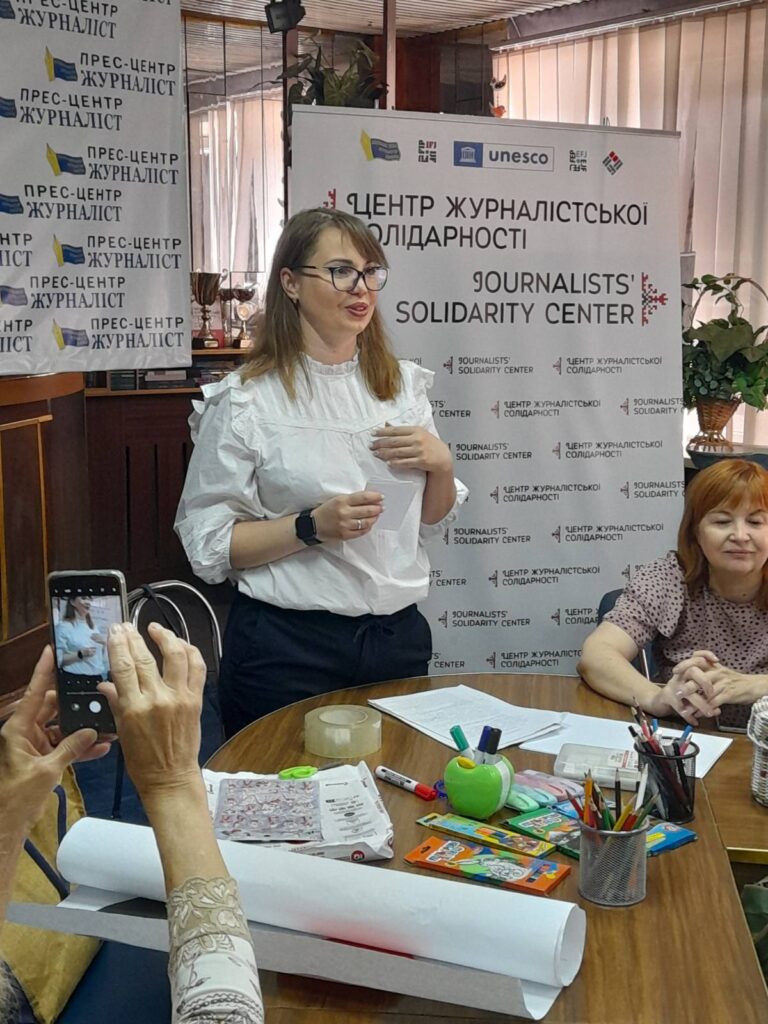
At the Zaporizhzhia JSC, during the training called Increasing Stress Resistance Of Journalists, a psychologist practicing specialist of the All-Ukrainian mental health program How are you?, Dariya Boiko, offered journalists from the front-line areas a number of methods for overcoming stress. During a group therapy session, she showed, in particular, how to overcome anxiety through drawing.
“Painting a ‘safe place’ helped me release emotions that I had kept inside me for a long time,” shares Alla Shamrai, a radio journalist from the currently occupied Enerhodar.
“We are learning to find the strength to live and work in the conditions of war,” concludes Nataliya Stina, the editor of the Chervonyi Promin newspaper from Zaporizhzhia. “It turns out that stress resistance can be trained like muscles. The main thing is to start with basic things: normalizing sleep, balanced nutrition, and finding positive emotions.”
“Filling the personal first-aid kit of psychological self-help” is a key skill for journalists in today’s environment. The all-Ukrainian webinar titled How To Cope With Stress And Recover, organized by the Ivano-Frankivsk JSC, was dedicated to this topic.
Nadiya Vitiuk, a psychologist and associate professor of the Vasyl Stefanyk Precarpathian National University, presented the participants with a number of effective techniques for combating stress:
- “Unfortunately – fortunately:” finding the positive in difficult situations;
- “My eternal engine:” identification of personal support resources;
- “My Rainbow in Life:” focuses on activities that bring joy in difficult times.
“These simple but effective techniques help to master emotions and reduce stress,” explains Nadiya Vitiuk.
Webinar participants also shared their methods of dealing with stress, from walking and sports to watching favorite movies and reading books.
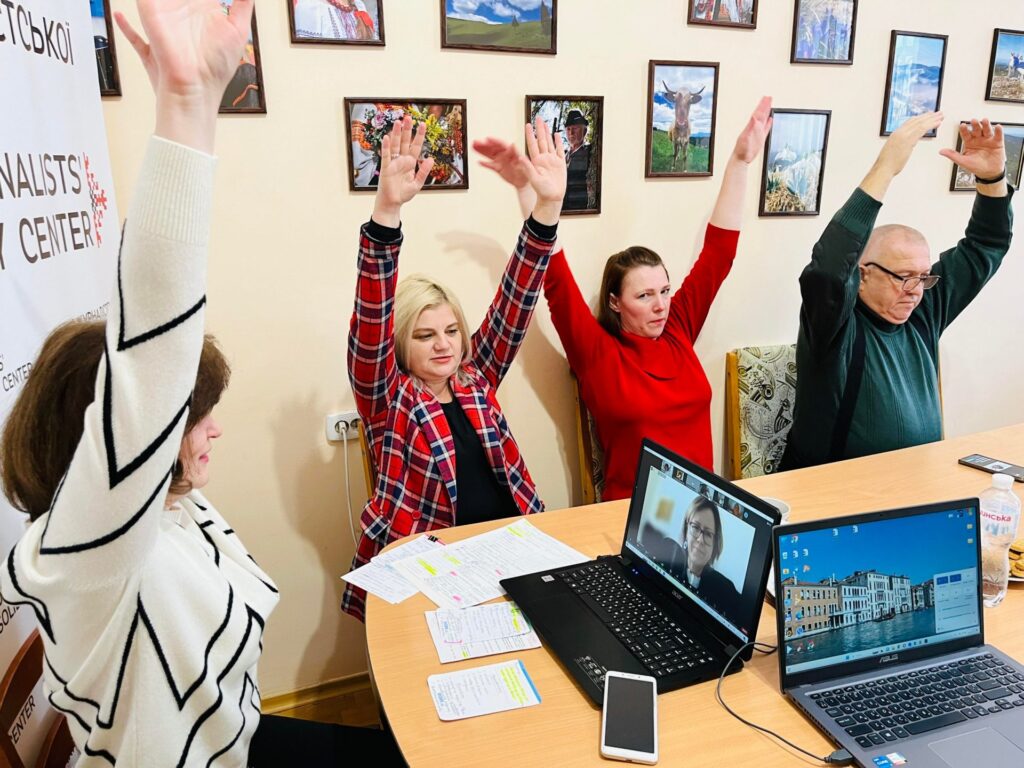
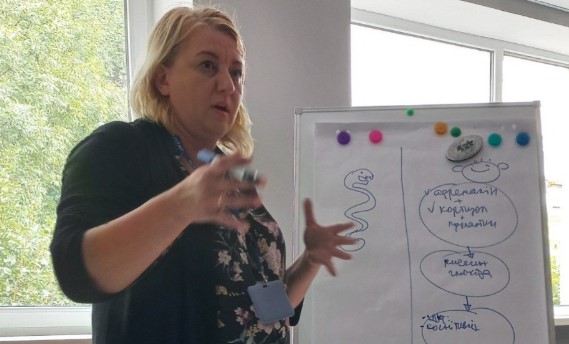
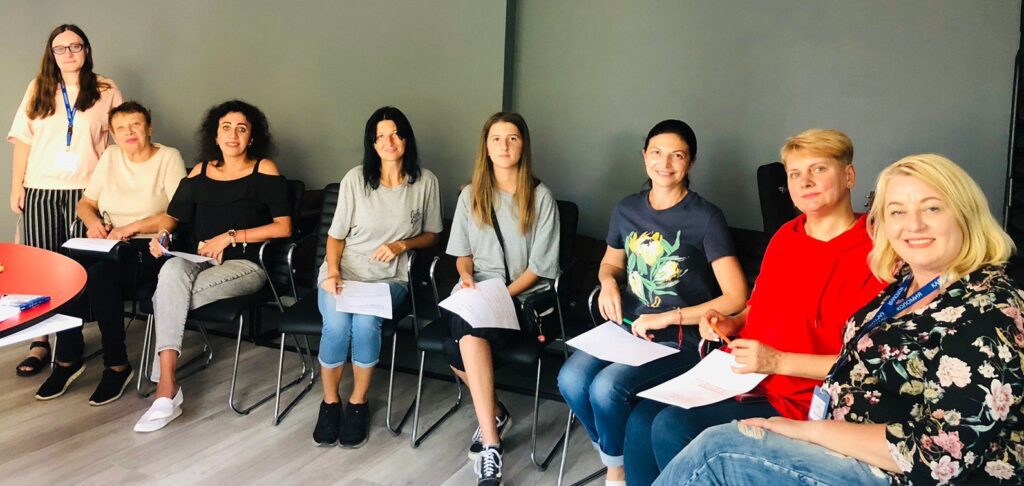
Liubomyr Belei, the host of OTB Halychyna, emphasized the importance of going beyond the information space: “It is critically important for journalists to find ways to ‘reboot.’ For someone, it can be art or music – the main thing is to find your method.”
This webinar is just one part of the extensive work carried out by the NUJU JSCs network to support the mental health of media workers. Positive feedback from participants confirms the relevance and effectiveness of such initiatives.
Editors under double pressure: self-care and collective care
In times of war, media managers face a double challenge: they must not only take care of their mental health but also the safety and psychological well-being of their employees. This responsibility greatly complicates their work, especially in stressful situations.
Elena Sek, a military psychologist, emphasized the importance of psychological support in the editorial teams even at the beginning of the full-scale invasion. During the NUJU online training Psychological Safety Of Journalists Covering The War In Ukraine, she advised:
- “Each business trip should end with a discussion of the experience. This is not just an exchange of information but also the prevention of psychological helplessness and loneliness of journalists. Such conversations create a single mental field in the team, which is critically important in the conditions of war.”
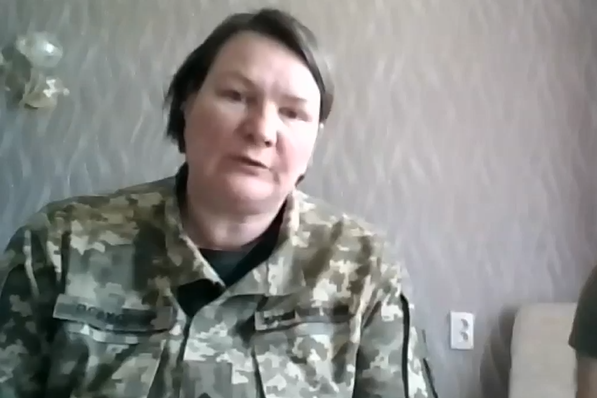
Tetiana Kaushan, the editor-in-chief of the Putyvlski Visti newspaper from the Sumy Region, shares today’s realities:
- “Even basic compliance with safety rules becomes a challenge. We have a shelter across the street, but often, in times of panic, people just run outside. At the moment of the explosion, you just get stuck and do not know what to do first – evacuate the team or call your relatives. Psychological readiness for such situations is something we all still need to work on.”
These testimonies emphasize that the situation for editors is not getting any easier as the war continues. They need additional support to effectively manage teams in conditions of constant danger and stress.
The National Union of Journalists of Ukraine continues to pay attention to this problem, organizing training sessions and providing psychological support not only to ordinary journalists but also to media managers. This is an important step in ensuring the stability of Ukrainian media in the conditions of a long conflict.
Expanding the toolkit of psychological support
To meet the growing needs of journalists for psychological support, an electronic express guide, How Can A Journalist Achieve Psychological Stability?, has been created. This resource was developed based on the results of a series of webinars organized by the Western Ukrainian Media Center New Journalism in cooperation with the European Centre for Press and Media Freedom (ECPMF) as part of the Voices of Ukraine program, with the support of the German Ministry of Foreign Affairs, NUJU, and the Lviv JSC.
Solomiya Onufriv, an associate professor of Lviv National University and editor of the guide, notes:
- “We sought to create a practical tool that would help journalists not only maintain their psychological stability but also ethically cover traumatic events.”
However, practice shows that knowledge alone is not enough. Journalists note a systemic problem: the effect of training sessions is often short-lived, and acquired skills are quickly forgotten without constant practice.
Tetiana Kaushan, the editor of Putyvlski Visti, shares:
- “The training sessions of the JSCs are very meaningful, but without constant practice, skills are lost. It is especially difficult to remember techniques in a stressful situation. We need regular face-to-face meetings to share experiences and support.”
Tetiana Velyka from the front of Zaporizhzhia adds:
- “The online format is not always convenient, especially for parents. I prefer individual consultations and live meetings. This gives an opportunity to work out personal problems more deeply and to get a real psychological relief.”
Maintaining the psychological health of journalists in wartime is a complex task that requires constant attention and adaptation of approaches. The initiatives of the National Union of Journalists of Ukraine, its JSC network, and partner organizations create an important foundation, but there is an obvious need for more individualized and regular support programs.
Important recommendations:
- Develop flexible formats of psychological assistance that take into account different schedules and needs of journalists.
- Create a system of permanent support, not just one-off measures.
- Integrate psychological self-help practices into the daily work of newsrooms.
- Strengthen the training of editors as the first support persons for their teams.
- Ensure the psychological stability of media workers is not only a matter of their personal well-being but also a guarantee of high-quality and ethical journalism in wartime conditions. This is an investment in the future of the Ukrainian media sphere and the informational stability of Ukrainians as a whole.
NUJU Information Service

 THE NATIONAL UNION OF
JOURNALISTS OF UKRAINE
THE NATIONAL UNION OF
JOURNALISTS OF UKRAINE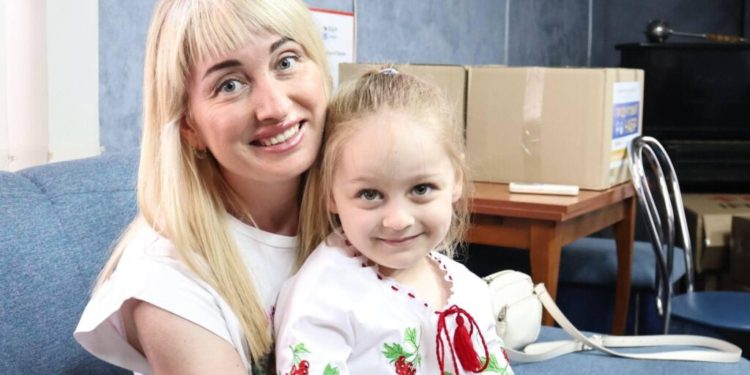

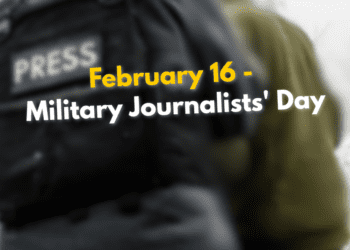














Discussion about this post